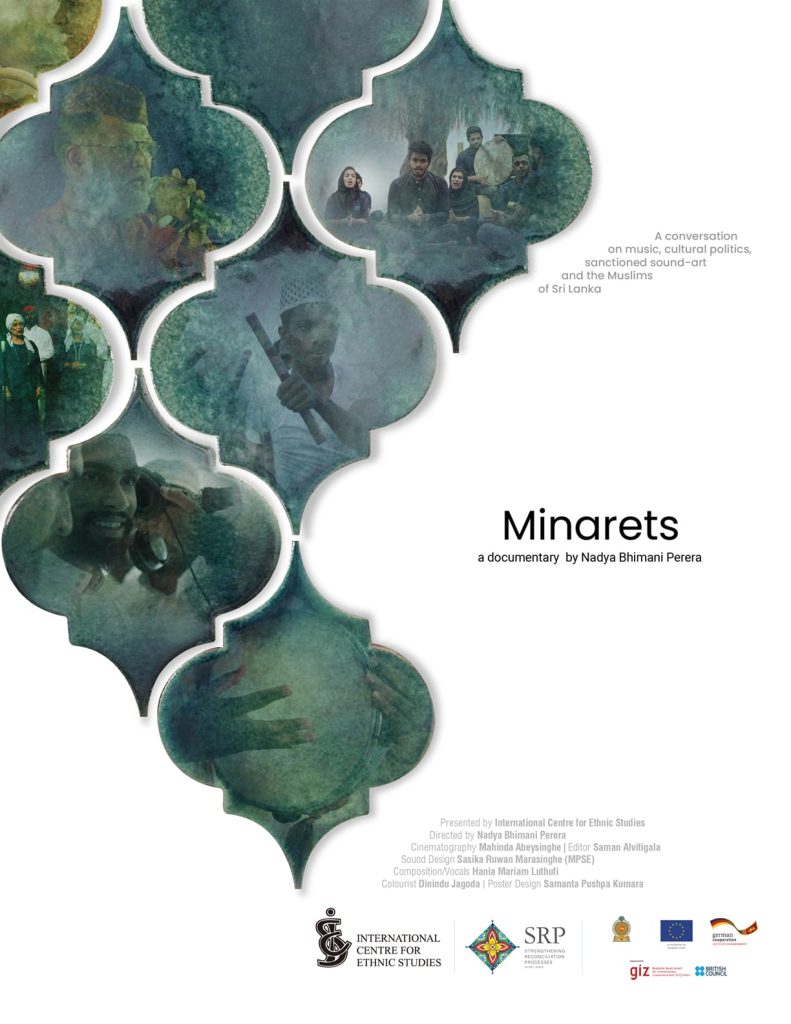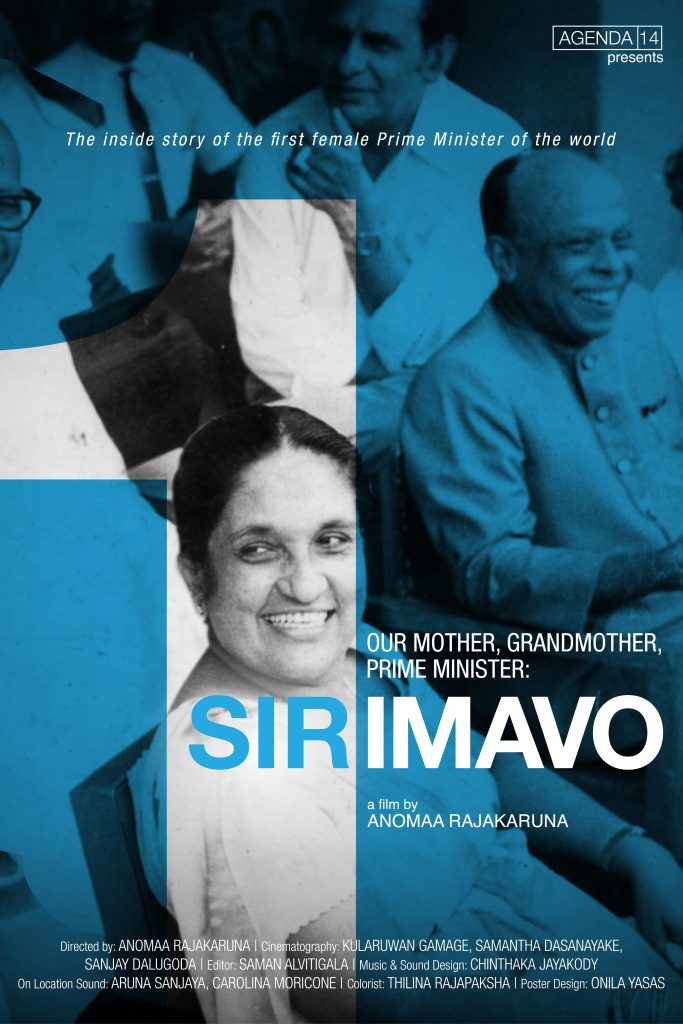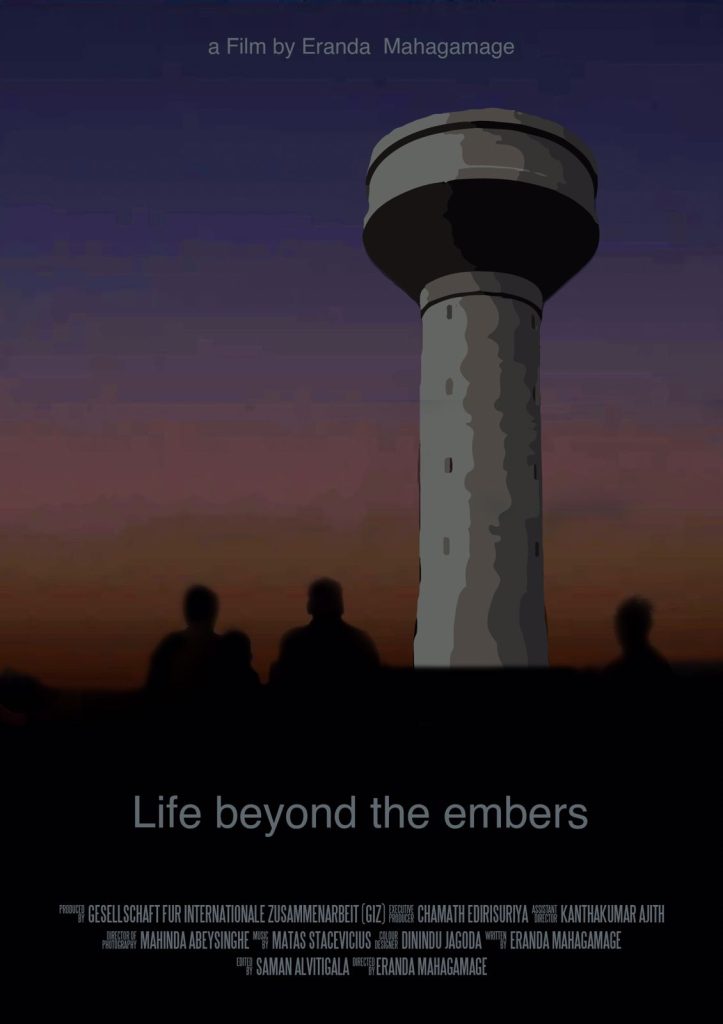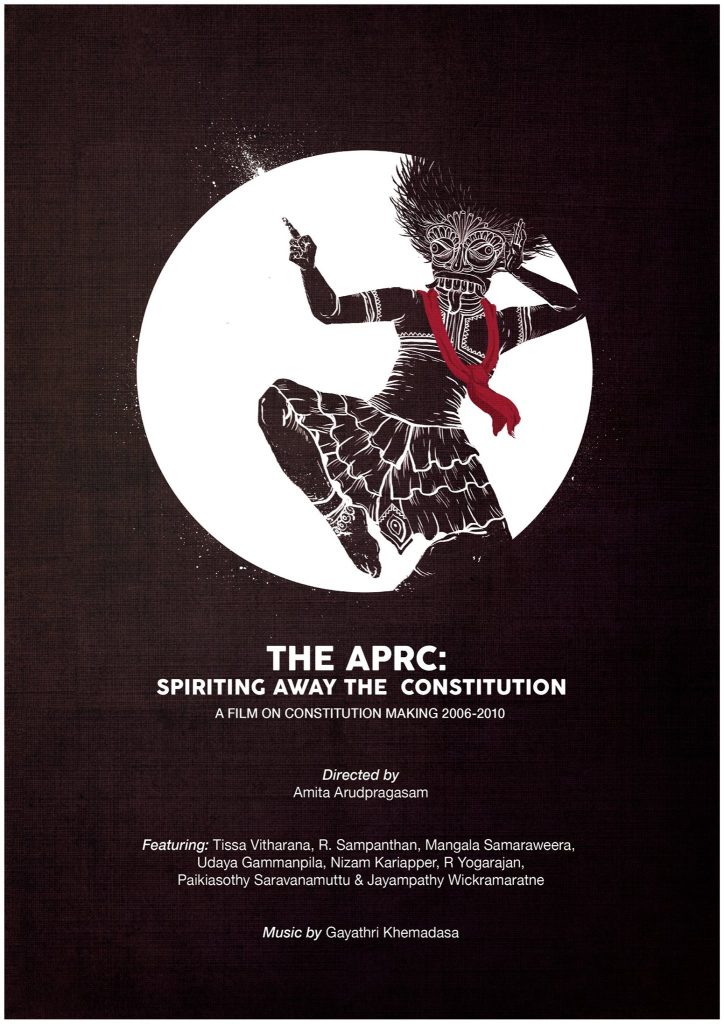
Life Beyond the Embers(2022) by Eranda Mahagamage
24 min / Documentary / Sri Lanka
Stories of the war-torn Kilinochchi people, woven around a symbolic public water tank which no longer exists. The water tank while in its existence was under the rebel control for its entirety and had fallen when they left the place during the war. The fallen tank was used as shelter by the distressed folk at the height of the war and with the normalization of the city after the wars ending, its remains have disappeared. The people recall their memory of the water tank, how the public operated when the war was ongoing and their personal trials and tribulations living in Kilinochchi.
WORK AT YOUR OWN RISK (2021) by Nadya Perera
49min / Documentary / Sri Lanka
WORK AT YOUR OWN RISK is a documentary exploring the complex realities of women workers belonging to the informal economy, in and around Colombo.
Although, agency work and forms of temporary employment like fixed-term contracts are commonly associated with informal work arrangements, employers (both in public and private sectors) continue to come up with new ingenious ways to shift risks and responsibilities on to workers. The film is an attempt to capture the stories of a few such hard working individuals, forced to live and work in a permanent state of limbo.
The APRC (2015) by Amita Arudpragasam
The perennial ‘national question’ of how state power should be organised has preoccupied much of Sri Lanka’s colonial and post-independence history. Through decades of political instability and ethnic conflict, successive governments have repeatedly failed to develop power-sharing proposals acceptable to all parties and communities. Failures to arrive at satisfactory consensus have come at the cost of life. For example, in September 1959 a Buddhist monk, dissatisfied with perceived state concessions to the Tamil population, assassinated S.W.R.D. Bandaranaike. Arguably, the lack of a political consensus, also led to civil war.
This documentary traces the excitement, the frustration, the disillusionment of political actors and lawyers who are trying to push forward what they believe is the critical progressive reform that Sri Lanka needs in order to achieve genuine reconciliation and true harmony.
It explores the unique prospect Sri Lanka had for transformation after the end of the civil war, but also the lost opportunities, through interviews with key APRC and Expert Panel representatives, the APRC chairman, and other political actors and citizens who are deeply affected by the movements of power around them. In doing so, it also explores the depth of political deceit in Sri Lanka.





